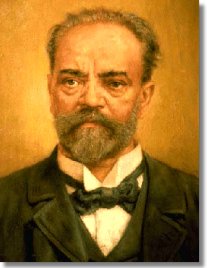
Few composers can claim outstanding success in all genres of classical music; Antonin Dvořák is one of them. Dvořák, whose 162nd birthday will be commemorated on Sunday, was a star who wrote great symphonies, symphonic poems, concertos, and chamber music. But he also wrote a number of successful operas, of which one, Rusalka, remains in the world repertory, choral music, songs, and piano music (including the Slavonic Dances for piano four hands). That’s not bad for a self-proclaimed late-starter, who had to be “discovered” and recommended to a publisher by Johannes Brahms, who became a lifelong friend. In America, Dvořák is famous for his New York residency (1892-95), during which he composed his Ninth Symphony (“From the New World”), whose premiere was a catalytic event in the nation’s musical history, and also his “American” string quartet (during a visit to Spillville, Iowa), and his Cello Concerto (inspired by the cello concerto of his fellow teacher at the National Conservatory, Victor Herbert). While in America, Dvořák had several significant pupils, including Harry Burleigh, an African-American who introduced him to spirituals and later became famous as an arranger of them. Dvořák also wrote influential newspaper articles about American music and how to create a “national style” for it. For a European master to take such notice of the emerging American tradition must have been a shot in the arm for American musicians in a European-dominated cultural arena. Find out more about Dvořák, along with fun facts, music, videos, and links in SFCV’s Composer Gallery page.
